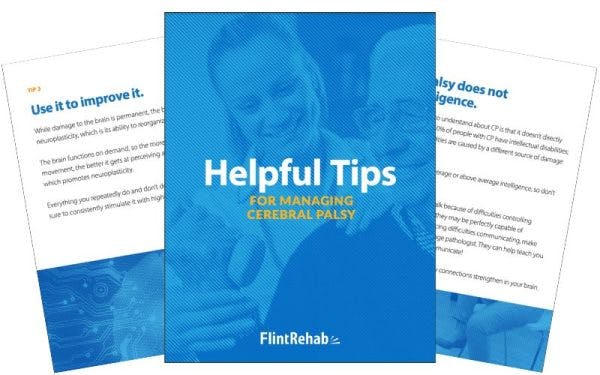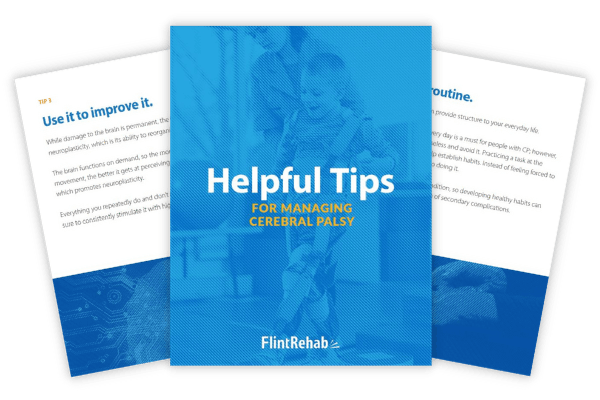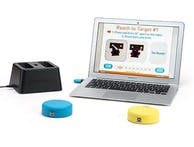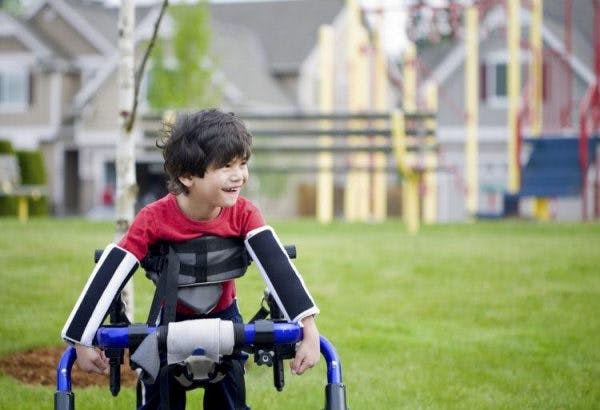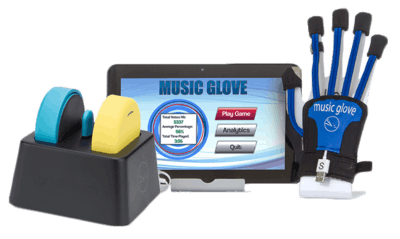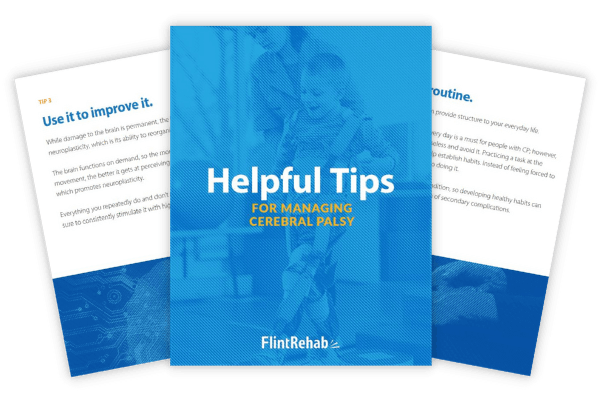Finding jobs for people with cerebral palsy might seem like a daunting task, but CP shouldn’t stop you from having a fulfilling career.
A person with cerebral palsy should be able to do whatever they set their mind to.
This article will go over everything you need to know about finding a job, getting workplace accommodations, and qualifying for disability benefits with cerebral palsy. Let’s get started!
What You Should Know Before Applying for Jobs

Title I of the Americans with Disabilities Act prohibits employers from discriminating against qualified people with disabilities like cerebral palsy in hiring, applying, firing, and training.
It helps ensure that people with cerebral palsy have the same opportunities as everyone else.
Although cerebral palsy is not explicitly noted in the Americans with Disabilities Act, it can fall under the general definition of “a person who has a physical or mental impairment that substantially limits one or more major life activities, has a record of such an impairment, or is regarded as having such an impairment.”
An employer can ask if you’re able to perform certain tasks, but they cannot specifically ask you to disclose information about your disability before employment.
This helps encourage the employer to focus on one’s qualifications rather than their disabilities.
Many people with CP can actively work as long as they are provided with the right accommodations.
The ADA requires employers to make reasonable accommodations to help individuals with disabilities succeed in the workplace.
Reasonable accommodations for cerebral palsy can include:
- Flexible scheduling
- Working remotely
- Adaptive devices and equipment
- Reserved parking spots
Cerebral Palsy and Employment

There are no specific jobs for people with cerebral palsy because every case of CP is different.
Cerebral palsy is an umbrella term that encompasses a broad spectrum of various movement disorders. It can range from mild to severe and affect various areas of the body.
Some people with cerebral palsy have diplegia, which is when motor impairments mainly affect the legs. They can usually use their arms and hands freely, meaning that they should have the physical abilities required to perform a variety of jobs, such as those that primarily involve using a computer or talking on the phone.
Others who have monoplegia may only have one affected limb (usually an arm) and generally are able to move around and perform more active tasks.
Those with hemiplegia are only affected on one side of the body, and those with quadriplegia are affected throughout their entire bodies.
Want 19 pages of CP recovery tips in PDF form? Click here to download our free illustrated ebook now (link opens a pop up for uninterrupted reading)
Finding Jobs for People with Cerebral Palsy

There are many job networks that list jobs appropriate for those with disabilities like cerebral palsy.
Some prominent job networks for people with cerebral palsy include:
They help make it easier for individuals with CP to connect with employers.
However, people with cerebral palsy can and should apply for any job they feel they would be able to physically perform and are qualified for. If you feel that you are able to perform a job with reasonable accommodations, confidently advocate for yourself and your abilities.
Check out the video below to see how Chris found a career in software engineering, wrote his own book, and started a YouTube channel with non-verbal cerebral palsy!
What if Employment is Not Possible?
Some people with cerebral palsy may not be able to work a regular job due to the severity of their disability.
In such cases, individuals will likely be eligible to receive disability benefits from the Social Security Administration (SSA).
Generally, mild cases of cerebral palsy do not qualify for disability benefits.
However, if cerebral palsy prevents you from completing any of the following functions, you may qualify (SSA Blue Book 11.07):
- standing up from a seated position
- balancing while standing or walking
- using the arms
- understanding, remembering or applying information
- interacting with others
- concentrating, persisting, or maintaining pace
- communicating due to speech, hearing, or visual impairments
Focusing on Your Abilities
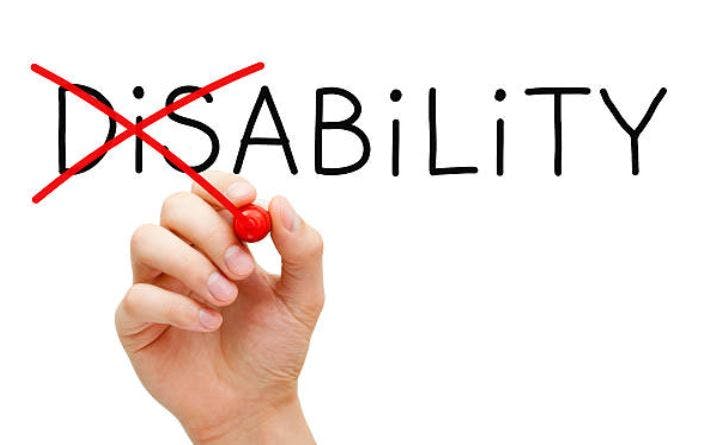
Sometimes, having a job is more than just an income. It’s the opportunity to contribute, feel independent, and be included in something greater than yourself. It is also may allow those with cerebral palsy to improve their social lives and promote others seeing beyond their disability.
A big part of finding the right job for you is finding the right management and company culture.
You want to work for a company that sees your potential and abilities, not disabilities.
Just because you have cerebral palsy does not mean you shouldn’t aspire towards your dream job.
Hopefully, this article helped you better understand what to expect when looking for employment with cerebral palsy.
Present your skills, know your rights, and prove that disability doesn’t mean inability. Good luck!


